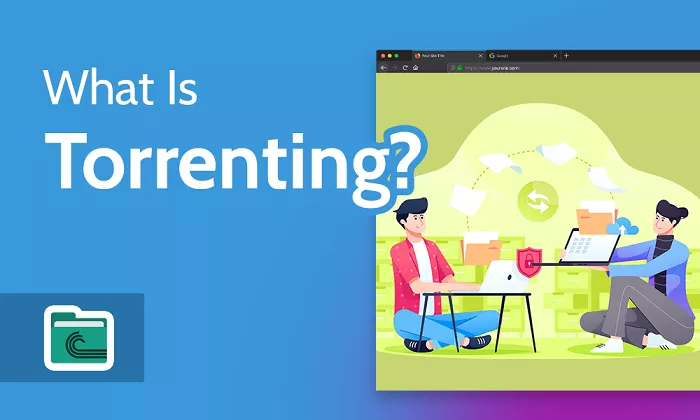Torrenting is a method of sharing files over the internet using the BitTorrent protocol. It allows users to download and upload large files efficiently by connecting to multiple peers. However, torrenting can expose your IP address and online activities, leading to privacy concerns. This is where a VPN (Virtual Private Network) comes into play. A VPN encrypts your internet connection, masking your IP address and securing your online activities.
What is Torrenting
Torrenting involves downloading and uploading files through a decentralized network of computers. Instead of downloading a file from a single server, your device connects to multiple peers, each sharing parts of the file. This method can lead to faster downloads but also exposes your IP address to others in the network.
What Is a VPN?
A VPN is a service that creates a secure, encrypted connection between your device and the internet. It routes your internet traffic through a remote server, masking your real IP address and encrypting your data. This enhances privacy and security, especially when torrenting.
How Does a VPN Enhance Torrenting?
Using a VPN while torrenting offers several benefits:
- Privacy Protection: A VPN hides your real IP address, making it difficult for others to track your online activities.
- Security: The encryption provided by a VPN protects your data from hackers and other malicious entities.
- Bypass Geo-Restrictions: Some content may be restricted in certain regions. A VPN allows you to connect to servers in different locations, accessing content as if you were in that region.
- Prevent ISP Throttling: Internet Service Providers may slow down your connection if they detect torrenting. A VPN hides your traffic, preventing such throttling.
Choosing the Right VPN for Torrenting
Not all VPNs are suitable for torrenting. When selecting a VPN for this purpose, consider the following factors:
- No-Logs Policy: Ensure the VPN does not keep logs of your online activities.
- High-Speed Servers: Look for VPNs with fast servers to maintain good download speeds.
- Strong Encryption: A VPN should offer robust encryption to secure your data.
- Kill Switch Feature: This feature disconnects you from the internet if the VPN connection drops, preventing exposure of your real IP address.
- Compatibility: Ensure the VPN is compatible with your device and torrenting software.
Legal Considerations of Torrenting
While torrenting itself is legal, downloading copyrighted content without permission is illegal in many countries. Using a VPN does not make illegal activities legal. It’s important to be aware of the laws in your country regarding torrenting and ensure you are not violating any copyright laws.
How to Set Up a VPN for Torrenting
Follow these steps to start torrenting safely with a VPN:
- Choose a reliable VPN with P2P support.
- Download and install the VPN app on your device.
- Connect to a server that allows torrenting.
- Open your torrent client and start downloading.
Best Practices for Safe Torrenting
To torrent safely, follow these best practices:
- Use a Reliable VPN: Choose a VPN that offers strong encryption, a no-logs policy, and high-speed servers.
- Download from Trusted Sources: Ensure the files you are downloading are from reputable sources to avoid malware.
- Enable the Kill Switch: Activate the kill switch feature to protect your real IP address if the VPN connection drops.
- Keep Software Updated: Regularly update your VPN and torrenting software to protect against vulnerabilities.
Conclusion
Using a VPN for torrenting enhances your privacy and security by encrypting your internet connection and masking your IP address. While torrenting itself is legal, it’s crucial to ensure that the content you are downloading is not copyrighted without permission. By choosing a reliable VPN and following best practices, you can enjoy safe and anonymous torrenting.

